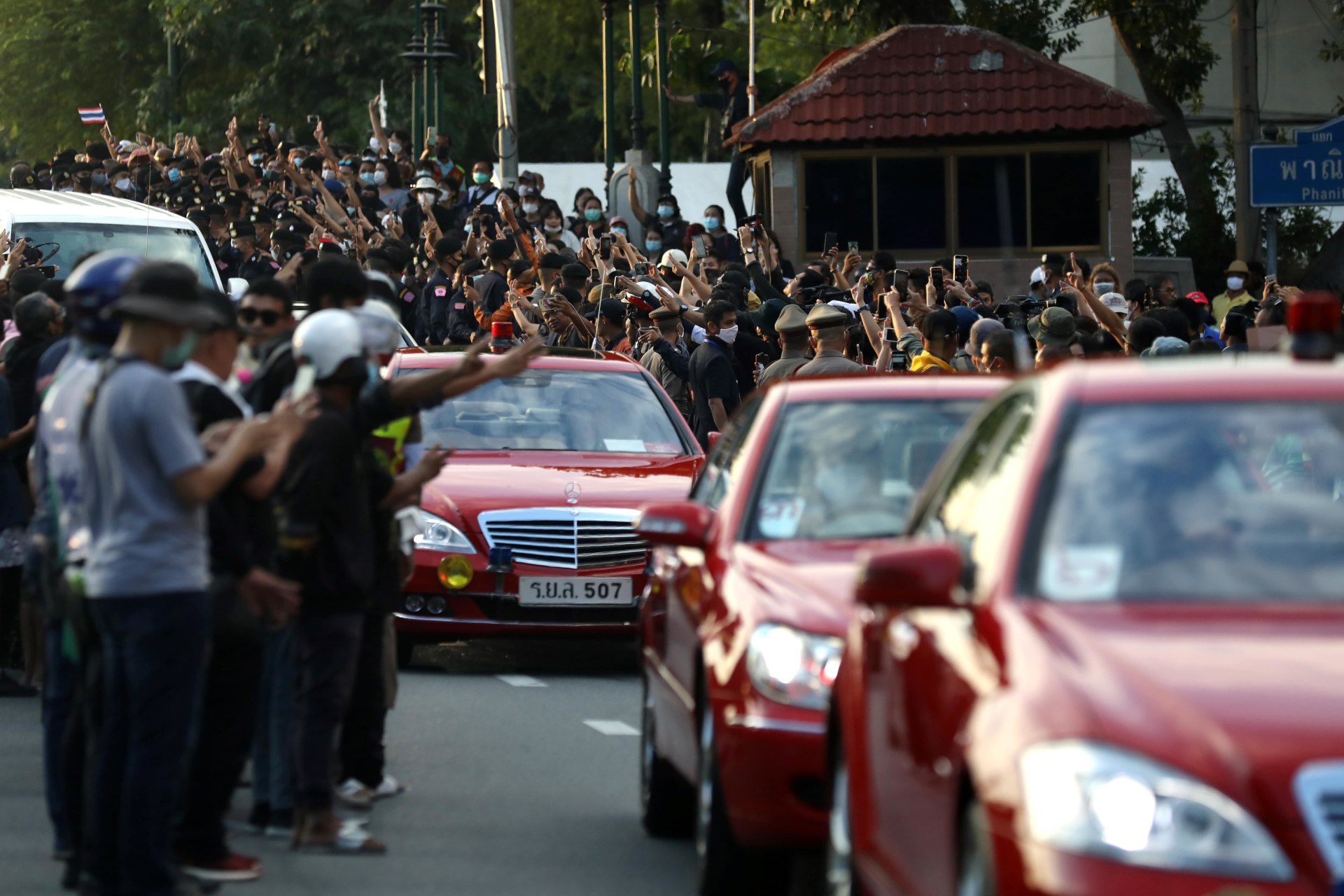Thailand Spiraling Toward Outright Conflict

By experts and staff
- Published
Experts
![]() By Joshua KurlantzickSenior Fellow for Southeast Asia and South Asia
By Joshua KurlantzickSenior Fellow for Southeast Asia and South Asia
In recent days, protests and counterprotests in Thailand have pushed the country closer to dangerous conflict between pro-democracy demonstrators, who also increasingly have called for monarchical reforms, and the royalist military and Prime Minister Prayuth Chan-ocha, himself a former general who launched the 2014 coup in the kingdom. Protests have been building for months, and have shifted from just focusing on constitutional reforms and calls for a new election to demanding reforms of the monarchy, which historically has been a taboo subject in Thailand and protected by lèse majesté laws.
Despite regular arrests of protest leaders, the demonstrations show no signs of abating. In recent days, the standoff has become much more serious. Thai King Maha Vajiralongkorn lives primarily in Germany but recently returned to Thailand, as the German government warned him not to be conducting state business from Germany. On Wednesday, protestors gathered in downtown Bangkok, confronting military and police and counterprotests. The demonstrators are infuriated by the king’s growing influence over Thai politics, the military, and Crown Property Bureau funds, his unwillingness to actually live in Thailand, and his often-chaotic personal lifestyle. In fact, the king is so much more willing to openly wield power than his predecessor father, and as a result he has made himself more open to public criticism.
The situation remained mostly calm, but when the motorcade of Queen Suthida traveled down a main road this week in the capital, following a ceremony at the Grand Palace, it was confronted by protestors waving the three-finger Hunger Games sign, now a symbol of protest in Thailand. They heckled the royal motorcade, making fun of the royals’ lavish, and state-supported, lifestyle, although there was no effort to commit violence by the demonstrators. Still, open heckling of royals shows how far Thailand has come, in just months, to abandoning the taboo about critiquing the monarchy—and directly showed the monarchs, from inside their cars, the anger of some Thais. (The demonstrators say they did not intend to hinder the royal motorcade, although the government says they did.)
Now, the potential for real violence looms. Protestors continue to turn out in the streets, on Thursday defying the government’s orders not to gather in large numbers in public. The authorities arrested more protestors, but they do not seem to have stopped the demonstrators’ willingness to assemble. So far, the authorities have not resorted to measures like those used against demonstrators in 1976, 1992, and 2010—shooting demonstrators and committing other bloody acts. But this remains a real possibility.
